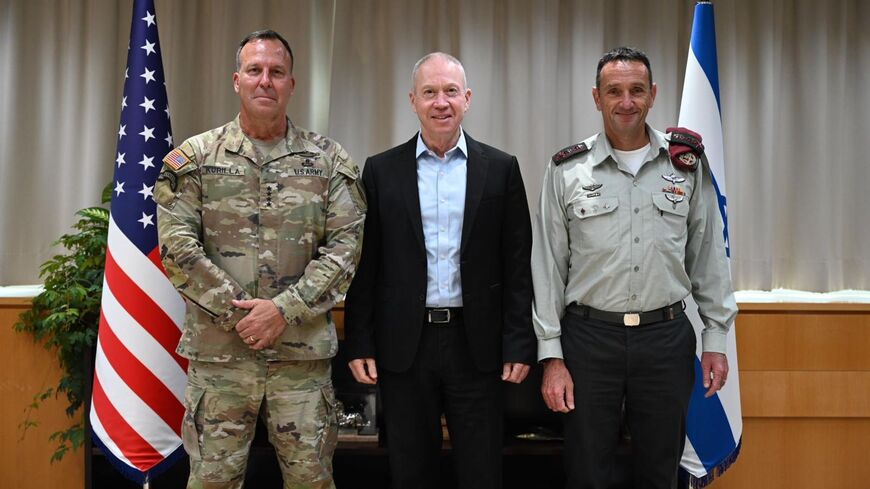The head of US Central Command (CENTCOM) overseeing all American forces in the Middle East, Gen. Michael Erik Kurilla, met Wednesday in Tel Aviv with Israeli Defense Minister Yoav Gallant, just two days after the Knesset adopted controversial legislation called the "Reasonableness Clause" eroding the powers of the Supreme Court and triggering concerns in Israel over the readiness of its military.
A statement issued by the Israeli Defense Ministry said that the meeting, held at the Defense Ministry headquarters, also included IDF Chief of Staff Herzi Halevi, head of the IDF Operations Division Oded Basiuk, IDF attache in Washington Hedi Silberman and head of the Political-Security Division at the Ministry of Defense Dror Shalom.
"In their conversation, Gallant and Kurilla discussed the security challenges in the region, focusing on Iranian terrorist activity throughout the Middle East, including funding, training and the transfer of weapons to terrorist organizations in Syria and in Lebanon," read the statement.
It also referred to a telephone conversation between Gallant and Secretary of Defense Lloyd Austin the day before. "Following his conversation with Defense Secretary Austin, the defense minister spoke with General Kurilla about the progress in the security-military coordination between Israel and the US, to prevent military nuclear weapons from Iran."
US President Joe Biden and his administration have expressed growing concerns over the controversial legislation adopted by the Knesset on Monday and the government pushing through its judicial overhaul plan despite mass demonstrations in Israel against it. In his conversation with Austin on Tuesday, Gallant referred to these concerns, noting, "The State of Israel is a strong democracy and will remain so in the future."
The disagreement between the United States and Israel over the overhaul plan adds to several other points of disagreement between the countries, including the composition of Prime Minister Benjamin Netanyahu’s coalition, which includes far-right ministers and Knesset members and his government’s pro-settlement policies. The schism has reached a high point over Biden’s refusal to invite Netanyahu to the White House.
State Department spokesperson Vedant Patel clarified after Knesset approval, “There is not going to be any cut or stoppage of military aid, and that is because our commitment to Israel and our commitment to Israel's security is ironclad. Our decades-long partnership with Israel is ironclad.”
The conversation with Austin and Kurilla's visit are sending the same message to Israeli authorities: that despite the rift between leaderships, Washington does not intend to stop its military aid to Israel. They also signal that both defense systems continue to collaborate on the Iranian threats including the nuclear program and Iran-affiliated Hezbollah.
The latter issue was surely discussed at length at the meeting with Kurilla, on the backdrop of growing action by Hezbollah on the Lebanese border fence, attempting to damage it several times in the past few weeks. The last such incident took place on Tuesday, when Hezbollah operatives were filmed patrolling Israel’s border in military gear. Also on Tuesday, Hezbollah Secretary General Hassan Nasrallah gloated that Israel was on the “path to disappearance” as chaotic demonstrations against the judicial overhaul took place outside of the Knesset on Monday.
Another issue likely to have been discussed was the volatile situation in the West Bank city of Jenin, considered by Israel a hub for Palestinian militancy. An IDF spokesperson confirmed on Wednesday that during an operation to arrest a wanted man in Nablus the day before, an exchange of fire erupted between the Israeli forces and armed Palestinians, who threw stones at the soldiers. The Palestinian Health Ministry reported that Muhammad Abdel-Hakim Nada, 23, was killed in the exchange of fire in Nablus.








